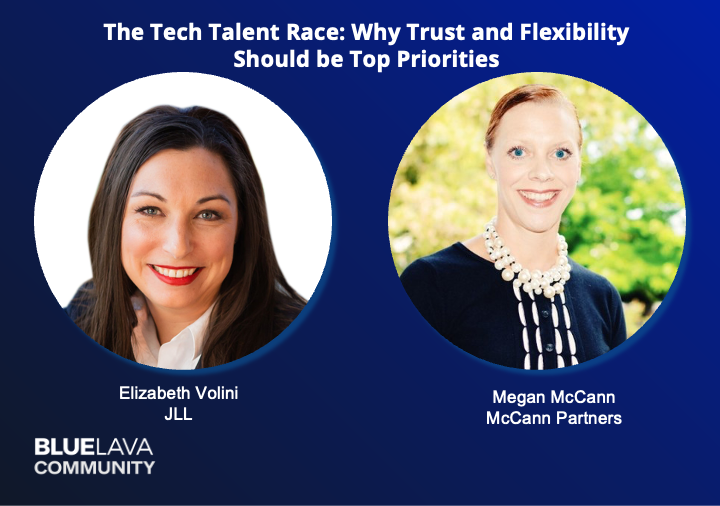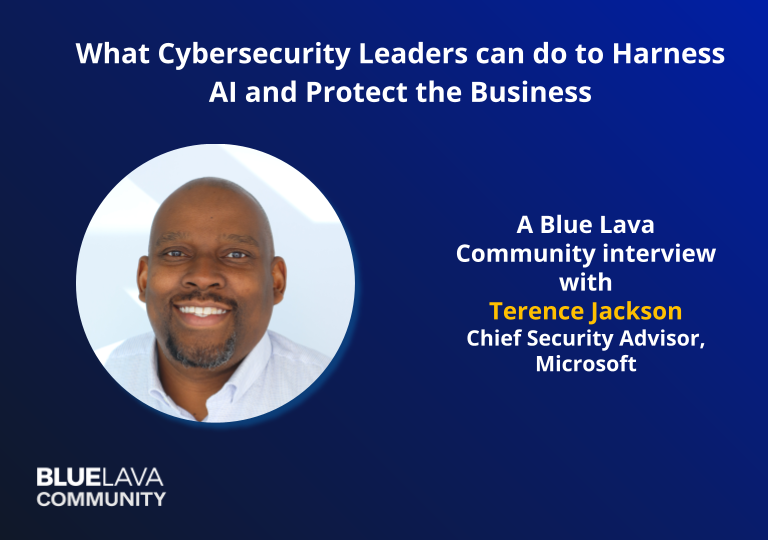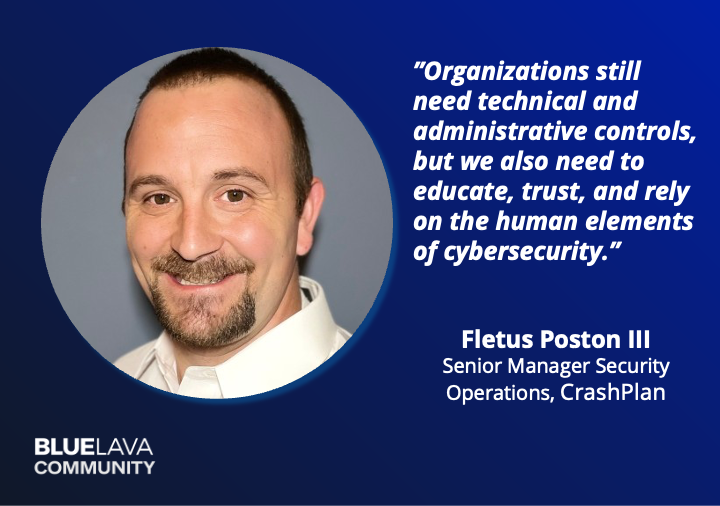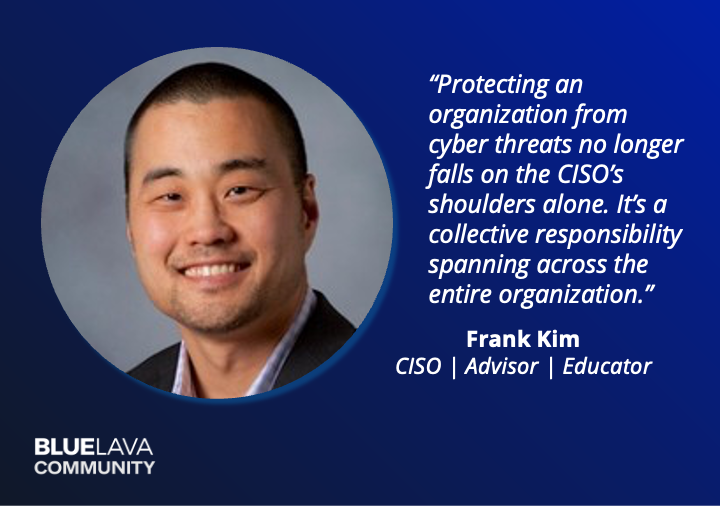

The Tech Talent Race: Why trust and flexibility should be top priorities
Blog Post
The Tech Talent Race: Why trust and flexibility should be top priorities
Veronica Wolf
February 13, 2023
The current tech/IT talent shortage continues to impact all industries, while the remote work innovations brought about by the pandemic have permanently changed employees’ expectations about their working conditions. However, many businesses have been slow to embrace remote and hybrid work environments, which can negatively affect employee satisfaction and retention.
In this article, Megan McCann, CEO of McCann Partners and Elizabeth Volini, Executive Director at JLL Technologies, offer tips on how you can simultaneously increase synergy, ensure representation, and achieve business goals.
Why employee satisfaction/happiness is important
Despite some prominent layoffs in the tech industry lately, hiring and retention also remain significant challenges for businesses recruiting security talent. A recent ISACA report found that 63% of respondents had unfilled cybersecurity positions.
In this competitive tech talent labor market, security professionals have more options than ever before. And while companies are struggling to fill roles, they are losing time, money, and their competitive edge. Finding ways to attract the services of modern workers is an absolute must.
Of course, focusing on employee satisfaction shouldn’t only be a priority in the recruiting phase. Regardless of their standing, satisfied and happy employees tend to be more productive, engaged, and motivated. They are also more likely to stay with your company for longer periods, which can help to reduce turnover and recruitment costs.
Happy employees also tend to have a more positive attitude towards their work and colleagues, which can help to create an inclusive and productive work environment. Ultimately, improving morale will improve cohesion and productivity.
Why organizations and hiring managers must rethink the workplace
“There’s just a reliance on old perceptions and mistrust that you must sit at your desk every day to prove that you’re working, but the space has been evolving so rapidly that it’s really hard for companies and individuals to figure out what that balance needs to be.” -Elizabeth Volini
As Elizabeth points out, organizations and hiring managers are facing an evolving work landscape: Simon Sinek has stated that this period of uncertainty will likely continue for another year as people struggle to find a balance between holding on to the past and embracing new ways of working.
The key to success is finding the right balance—such as having in-person meetings only a few times a week instead of insisting on outdated expectations of a constant presence in the office—and embracing, setting clear expectations, and being flexible with new collaborative work technologies.
Modern-day businesses must be more creative and flexible to attract top talent rather than insisting on strict work schedules that may not benefit everyone.
Elements needed to cultivate a loyal, productive, and happy employee
Flexibility
“Most, if not all the people we’re speaking with don’t wish to be in the office five days a week, and many of them are saying even two or three days per week is too much…
and yet we’re not seeing tech companies willing to be as flexible to those arrangements… that same group that continues to have a lot of challenges hiring.”
– Megan McCann
Flexibility in work arrangements allows for a more harmonious balance between professional and personal responsibilities, thereby enhancing job satisfaction and productivity. Flexibility isn’t a one-size-fits-all approach, though. People understand that the permissible level of flexibility depends on your role. Some roles demand in-person work, while others can be easily accomplished from home.
Diversity/Inclusion
A diverse and inclusive work environment promotes a sense of belonging and equitable treatment, also inspires innovation and creativity which in turn fosters employee engagement, motivation, and ultimately profitability even in a remote environment. Caretakers (of family members or children) in particular were exceptionally impacted during the pandemic, these caretakers require companies to be flexible so that they can bring their talents to the table. According to this HBR article, caregivers make up 72% of today’s workforce. Companies should not exclude this growing and necessary part of the workforce by maintaining rigid and outdated perspectives about how and when people do their work. When you’re in an environment that necessitates interaction and collaboration of diverse people, biases can’t hold up as easily, and you end up networking with a wider community.
Accessibility
Accessibility is another aspect of diversity and inclusion. It ensures that all individuals, regardless of physical abilities, have equal opportunities to contribute to the organization’s goals and objectives. While this is good for employees, it also benefits your business by widening your talent pool and bringing in new perspectives. Flexibility in collaboration and technology ensures companies the ability to bring all of these different perspectives to the table.
Empathy
Empathy is a crucial component in fostering a positive and productive work environment, as it allows for a deeper understanding and connection between individuals. This, in turn, can lead to greater job satisfaction, motivation, and commitment to the organization.
Find a balance
To succeed in the modern work environment, you need to trust the people you have hired and empower them to do their job. Instead of micromanaging with frequent meetings, give your team the freedom to work when it suits them best. This will lead to better results for your company and create a more positive and productive work culture.
Ultimately, the right balance is still evolving, we’re all finding a new way to do business in a climate of shifting priorities and expectations. There are no hard and fast rules, but if you lead with empathy and take an open-minded approach, your outcomes will be better than you might have expected.
Elizabeth Volini leads an enterprise project management office for JLL Technologies, a global commercial real estate company. She thrives in the IT space and focuses on getting people and projects across the finish line.
Megan McCann, runs an IT recruiting firm that focuses on creating diverse client teams. A lot of the work she does is focused on diversity recruiting. She co-founded an organization called ARA (which stands for attract, retain, and advance women in technology).





